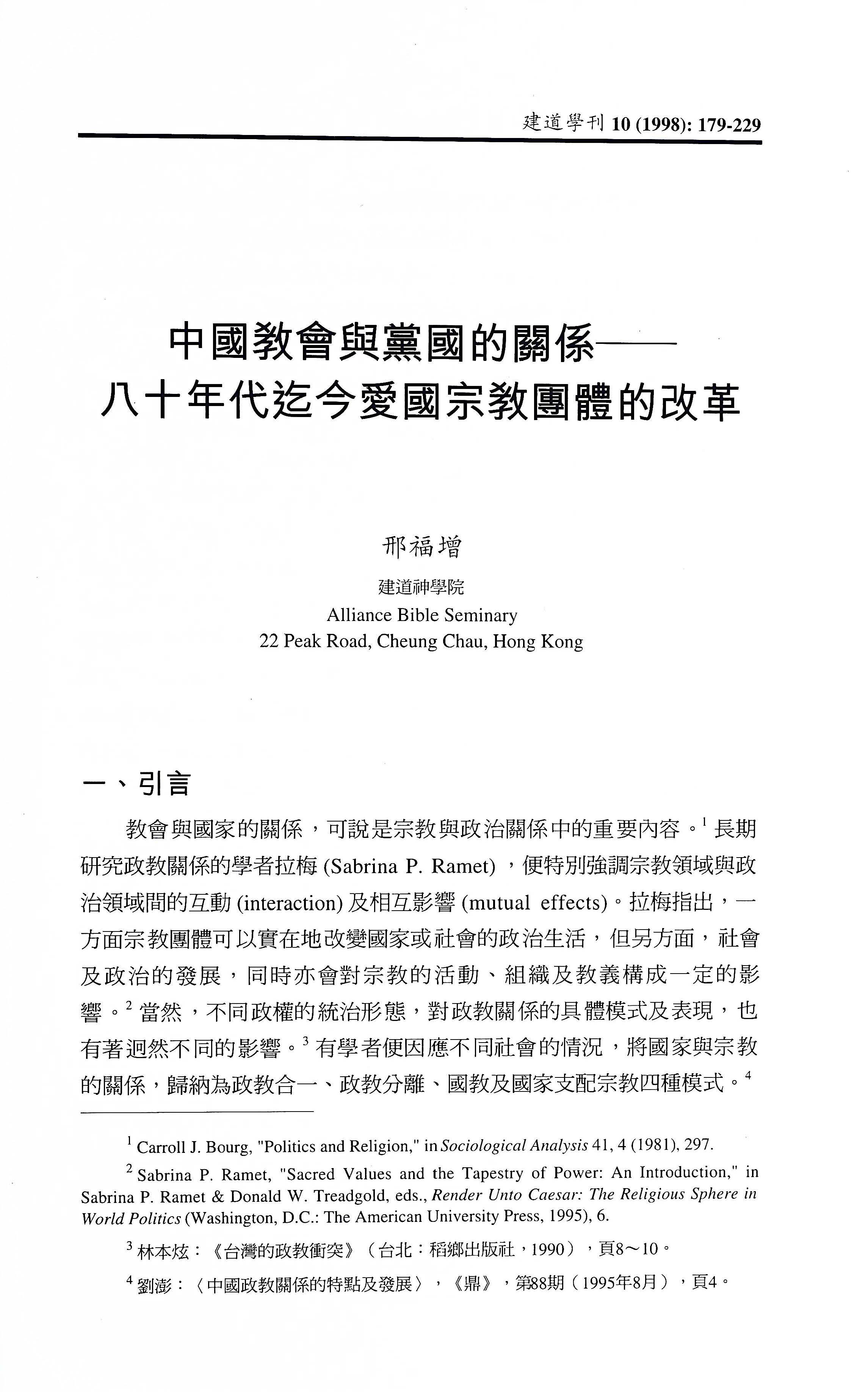中國教會與黨國關係──八十年代迄今愛國宗教團體的改革 / 邢福增
撮要
本文旨在探討在黨國支配宗教的大前提下,中國官方認可的基督教團體,如何在改革開放的新環境中為自己的工作定位及進行改革。改革的內容,主要體現在他們意圖在官方的政治角色之外,強化其宗教性質及教會代表的職能的努力,其中涉及理順三自組織與教會的關係,及理順黨國與教會的關係等重要課題。本文作者指出,從黨國的立場出發,非官方職能的強化,特別體現在辦好教會的方向下,其背後的考慮仍然有著相當的政治涵義。但是,當三自組織因著政治的需要而不得不朝著「教會化」、「教牧化」的方向發展時,「辦好教會」的非官方的職能,便要求教會領導更多地維護信徒及教會的利益,爭取其合法的權益不受侵犯。而這又無可避免地跟其官方的政治角色產生不協調、甚至是衝突的地方。 愛國宗教團體跟黨國間的既一致又衝突的矛盾關係,便是源於這種雙重角色。我們必須在這個角度下,來分析八十年代迄今中國教會的改革。
ABSTRACT
Since the implementation of economic reforms after the Eighties, the party-state recognised Christian patriotic organisation has sought to re-define her role and undertaken some reforms. Apart from the official role imposed by the party-state, the TSPM/CCC tried to represent Christians’ interests and to attain more autonomy. From the point of view of the party-state, even the religious nature or role emphasised by these organisations in the direction of “running the Church well” had its political significance. The paper argues that the religious or unofficial role of these patriotic organisations was inevitably came into conflict with their political or official role. The paradoxical relationship between Chinese church and the party-state was rooted in double role or duty of the former.
The paper discusses four major topics: 1. the political function and double duty of patriotic religious organisation after the Eighties; 2. the re-defining role of TSPM/CCC; 3. re-ordering the relation between Three-self organisations and churches; 4. reodering the relation between party-state and the Chinese church.
原載於《建道學刊》10期(1998年7月),頁179-229。
Latest Articles
新手牧者研究計劃(三):新手牧者的身心靈狀態 / 盧慧儀
2025 年 11 月 19 日
個體與關係:滕近輝思想中「深化」的靈性觀 / 倪步曉
2025 年 11 月 18 日
香港九龍塘基督教中華宣道會之起源和發展史/陳智衡
2025 年 10 月 20 日
Highlights
[電子書]困境與抉擇:「建道研究中心30週年誌慶」跨學科研討會論文集/廖炳堂、倪步曉主編
2025 年 1 月 2 日
從梧州到長洲:建道神學院125年的挑戰與恩典 / 陳智衡
2023 年 10 月 1 日
微小教會的見證/高銘謙
2023 年 6 月 1 日







